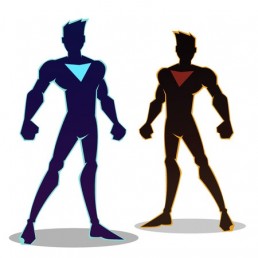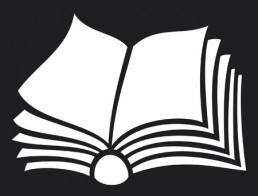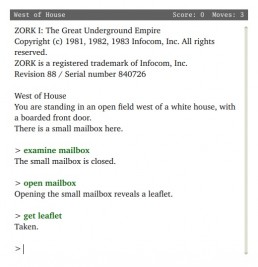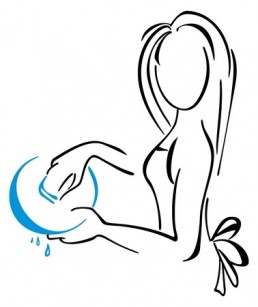One block of pulped tree...
This package arrived in the post a few days ago. It's the July/August 2015 back issue of the Magazine of Fantasy and Science Fiction and - by having the IQ of a toast rack - I'd managed to order a paper copy.
If you're an international reader of short SF&F fiction, Rocket Stack Rank has a guide to how you can obtain digital copies of professional science fiction magazines like Analog and Asimov's. That should stop a block of pulped tree being flown, entirely unnecessarily, across the Atlantic Ocean.
Heroism, message fiction and the countervailing point-of-view
I was fascinated to read a comment about message fiction (in film) on an article about free speech in the Spectator. The commentator, Sue Smith, argues that message fiction is where the text contains no countervailing point of view. There is only one 'truth' presented and emotional imagery, such as showing a character who looks like a Nazi, is used to create:
All in all the appearance of "bad" - completely taking away the opportunity for an audience to consider for itself the important question, "what would I have done in a similar situation?".
She goes on to argue that David Lean's film Doctor Zhivago presents countervailing points of view, thereby reflecting the moral ambiguity of life, and forcing the reader to determine a 'truth' for themselves.
A scene with the doctor, his mistress Lara and Lara's child Tatyana, who comes home from school with a drawing.
Tatyana,(showing Zhivago her drawing): "It's the Tsar; he's the enemy of the people".
Zhivago (concerned); "He didn't know he was their enemy".
Tatyana: "Well, he should have".Both statements contain truths.
I can't comment on the two films - Rabbit Proof Fence or Doctor Zhivago, as I've seen neither of them - but I like Sue's idea of giving a 'countervailing point-of-view'.
I desperately try NOT to write message fiction by creating sympathetic, but flawed characters (or that's the aim, anyhow). If even minor characters could be the hero of their own story, then it's up to the reader to decide who was in the right - or the wrong. Most heartbreaking tragedies, after all, involve sympathetic characters doing exactly what we might do in a similar situation... to their inevitable downfall.
Hugo Award nominees by nationality, and Read for the Day...
Lynn E. O'Connacht has done a fascinating analysis of the nationalities of Hugo Award nominees. I thought they were biased towards America, but this is the first time I've seen data. According to Lynn, 82.2% of Best Novel nominees since 1959 have come from the US. Only 12.4% have been from the UK.
With this in mind, today's recommended read is The Prestige by British novelist Christopher Priest. It's a fantasy about feuding magicians and inventor-physicist Nikola Tesla. It won the 1996 World Fantasy Award for Best Novel, and was made into a brilliant film featuring Christian Bale and Michael Caine. The trailer is below...
I personally love Christopher Priest's warm flowing narrative style, and watched the film after reading the book. They are slightly different; mostly the ending. The novel captures the feel of alternate history while being compellingly fantastical.
I own - but haven't read yet - The Separation and The Adjacent.
How to get a literary agent
Amy Suiter-Clarke was on my MFA course and has just secured a literary agent for her novel. She's blogged here about how she secured her agent - without a cold query.
I participated in three Twitter pitching contests and sent out dozens of queries before I found my agent. It took me nearly a year to get an offer. And while I know that isn’t long compared to some faithful writers who have been sending out novel after novel for years, I did gain some great experience along the way.
Passed on incase it's useful to anyone else.
How to make a living as a professional fiction writer
I've recently discovered New York Times bestselling author Larry Correia's writing class 'How to make a living as a professional fiction writer' . The notes were blogged by David Harr over four blogposts, which you can read here, here, here, and here.
The best session is definitely Week 1, Part 2, which explains how Larry managed to rocket his self-published novel Monster Hunter International to stardom by clever marketing, including upping the "gun nuttery" to appeal to gun fans - a community in which he was already involved. There's also some good advice on using short stories as a publicity tool.
Week 1, Part 1 and Week 2 cover the usual 'how to write' stuff - finding ideas, character, plot, how to outline, being prolific, blah... blah. Week 3 covers legal-type stuff like contracts.
Do the Hugo Awards have a short fiction problem?
At least one person complained that the Sad/Rabid Puppy nominees kept award-worthy short stories off the 2015 Hugo ballot... So I was curious. Was this true? Were these stories better than the stuff I'd read? An experiment was in order. I've now read the nominees on io9's Puppy-free ballot. Here's how I'd have voted.
#1 WINNER - When it Ends, He Catches Her, Eugie Foster
When It Ends, He Catches Her has a tale behind it, and it's the saddest in the Hugos. The day after Daily Science Fiction published the story, Eugie Foster died. It was her last chance to win the award.
There is no doubt - to me - that When It Ends, He Catches Her should have won Best Short Story. It is a story I wish I could have written. That - to me - is the purpose of the Hugos, to showcase work that I know I can't... Perhaps can never write.
It's a tale of a zombie who dances alone in a deserted theatre, long after humanity has died in an apocalypse. A tale of memory and of loss, it depends wholly on its fantasy setting to give it meaning. Beautifully constructed, it neither wastes words nor outstays its welcome. Utterly apolitical, it addresses human universals - death, love... life itself. Were I to make one criticism, it would be that the story depends heavily on the literary trick of the dancer not remembering she's a zombie until the end. I can't complain too much, however, as Eugie carefully foreshadows the kicker in the first paragraph.
Sadly, despite appearing on the io9 list, When It Ends would have been disqualified from the Hugos. It only received 44 nominations, less than the 5% needed to become a nominee (Section 3.8.5 of the WSFS constitution) . A big shame... And perhaps a reflection of a problem with the awards. A small crowd of superfans can't read everything, and this story wasn't published in one of the big professional magazines.
#2 NO AWARD - Nothing below this point was bad... It was all competent. Good, but not great.
#3 RUNNER-UP. The Breath of War, Aliette de Bodard
I feel bad that I would have No Awarded The Breath of War. It's a cute story about a heavily-pregnant woman travelling through a war zone to find her 'breath-sibling', the stone starship she carved as a teenager and now needs to give birth. Will she find the starship before she goes into labour and her child is stillborn?
My problem with this story is twofold. First, the worldbuilding. The author has created a universe with sentient stone that humans carve into living creatures (including warships) and need to reproduce successfully. Yet there's no evidence - in the story, at least - that Aliette had fully considered the enormous economic, social, and political effects of this magic material.
- Why don't the rebels simply confiscate the stone and send their enemies extinct?
- Why are there science fiction elements like aircars and drones, but everything else seems near-medieval?
- Why do the locals seem to have only one use for the stone - the traditional carving of breath siblings? Why don't they use it for robots, drones and fliers?
- Why - when Rehan can create a warship from stone - is she messing around being oppressed, pregnant and single? Why not loan out her services to whoever is in charge, meet some family-orientated dude (or gal) impressed by her panache, and end the war she hates so much? Maybe I missed that bit...
In fact, why is Rehan so infuriatingly passive full stop? The newly-carved warship invites her to explore the galaxy (or similar). She turns it down. She inseminates herself, knowing there's a war on, and waits until the last possible moment to journey to the mountains - vulnerable and pregnant. At the end of the story, she again bottles her decision to go with the warship but - instead - opts to stay home and give birth. Bear in mind, she doesn't have a lover waiting in the wings.
The story feels as if she's accultured to war and oppression... She almost displays Stockholm syndrome. And unrealistically so. Real refugees risk their lives to escape wars. Rosa Parks refused to give up her seat despite being oppressed. In short, Rehan is a passive patsy. In a universe where the worldbuilding raises more questions than it answers.
The stone spaceship doesn't behave believably either. It spends at least a decade fighting for Rehan and then - at the end of the story- chooses to fly into space. It's almost like an accountant who abruptly decides to become a lion tamer. In reality, after several years, it would probably have drifted into being a soldier of fortune - and sought another war - or become psychologically part of Rehan's family.
For me, The Breath of War would have been neck-and-neck with Turncoat from the Rabid Puppy slate. But maybe I'm being harsher on The Breath of War than Turncoat. My husband was intensely moved by Aliette's story. He read it as a metaphor for a person who wastes a decade of their life, only to discover they're infertile when they want children. I don't have baby hunger so I guess The Breath of War didn't work for me.
#4 Jackalope Wives, Ursula Vernon
It was a 'call of the wild' myth. It was prettily written, but far, far too long for what it was. As magical creatures, the jackalope wives were never explained, or developed. I skimread thinking, as with A Single Samurai from the Puppy list, "Aren't jackalope wives just a re-skin of the sirens in the Odyssey? And Homer had 2,000-year head start..."
If you want to write award-worthy traditional myth (or overcoming the monster) then - for me - you've got to REALLY hit it outside the park. And Jackalope Wives doesn't break any new ground.
#5 A Kiss with Teeth, Max Gladstone
An immortal vampire tackles the banality of contemporary Western parenthood. I liked the beginning of A Kiss with Teeth and I liked the end... The problem was the middle. Vlad spent far too long stalking his son's teacher, so long that I got bored and skipped off the story to read a blogpost. I had to wonder if the author wasn't being paid by the word and, in a short story, I should never wonder that.
#6 The Truth About Owls, Amal El-Mohtar
The Truth About Owls was among the best stories on the non-Puppy list. Unfortunately, it wasn't science fiction or fantasy and - as such - ineligible for a Hugo (in my opinion). That may be a little harsh, but if The Truth About Owls can get a Hugo, then Haruki Murakami should win a Hugo. As should all magical realism. As should the story of - say - a Hampstead literary critic who gets over their husband's affair by watching the third Hobbit film. You've got to draw genre boundaries somewhere...
The Truth About Owls is a literary short story about a girl who overcomes her demons by her love of owls and her passion for the Welsh myth about the flower maiden, Blodeuwedd. Judged as a literary story, it's above average, but it doesn't hold a candle to - say - Hilary Mantel. And, as such, it shouldn't be winning 'science fiction's most prestigious award'. The purpose of SF&F is scientific, fantastical and social speculation - not to be a dumping ground for fandom's literary fiction.
All that said, The Truth About Owls was cute, I quite liked it and I'd be happy to share it with friends
***
It's noteworthy that The Breath of War, Jackalope Wives and When it Ends, He Catches Her were shortlisted for the 2014 Nebula Award. Given the number of short stories published annually, it seems incredible that only three or four are award-worthy. Either that or Hugo-nominating voters are interchangeable with SFWA members - the same people or they share the same literary tastes. Neither is a good sign...
[UPDATE: 23/09/2015. I've sent Aliette a friendly (hopefully) email to let her know, out of politeness, that I blogged about her story as I wrote so much about it... It's how I try to walk the fine line between making sincere, passionate, but sometimes negative, comments, and being an asshat].
A new magazine for interactive fiction
Sub-Q is a new magazine that claims to be the first to pay professional rates for interactive fiction. They offer $90 for an original 1,000 interactive short story, and are looking for:
F/SF, horror, mystery, and mash-up interactive fiction. We like beautiful, moving prose, but we also like pulpy fun! Don’t self-reject. Let us see what you’ve got!
Submitted works must include at least a detailed proposal for interactivity.
According to Boing Boing, the magazine was inspired by the storytelling possibilities of mobile devices like iPads, and by the success of narrative games like 80 Days.
[Featured image is Zork, published in 1980 and one of the first interactive fiction games].
The Book Business (with dinosaur pwrn) 17.09.15
Can you write four good books in a year? SF&F authors Larry Correia and John Scalzi have remarkably similar answers. John Scalzi writes:
There are a lot of writers who write fast and well, for whom four books a year of readable, enjoyable prose is not a stretch. And, you know. If you can do that, and you want to do that, and you see an economic benefit to it, then why not do it?
Larry writes:
It depends entirely upon the author. [...] My comfy pace is about 4 months to write a book, a month off to step away to work on other stuff, so I can come back with a fresh perspective to edit for a month. But I’m a grinder. 10k words a week, treat it like a real job.
Larry does a short detour into discussing self-publishing vs traditional publishing, where his advice to GET PAID is a) write for a market and b) write a lot.
The 'write a lot' is particularly helpful advice since, according to Kameron Hurley (v. interesting blogpost), the average self-published book sells only 250 copies in its lifetime and a traditionally-published book only 3,000.
In short, if you want to sell 1,000 books - write four self-published novels, and experiment until you find your market. But, as Kameron points out, if you want to make real money and don't enjoy writing dinosaur pwrn (or for some other big market), don't write fiction. Corporate copywriting pays better.
[For anyone tantalised by the idea of monster pwrn, Buzzfeed has a great list of 'classic' titles. The sales descriptions alone are worth the click-through].
Where the fires met the sea
Basalt columns, Giant's Causeway...
Legend has it that Irish giant Finn MacCool built these spectacular stone pillars, but they were actually created by rivers of molten rock some 50-60 million years ago.
Today, the Giant's Causeway and surrounding coast is a World Heritage Site.
Click here to read more about the Giant's Causeway.
[All photos taken with an iPhone 6]
Read for the day - The School of English
My complaint about the Hugo Awards 2014 Best Short Story was that the winner was mediocre literary fiction, which raises the question - "What is good literary fiction?" So I asked a few Facebook friends to recommend some literary short stories they loved.
I've read one so far The School of English: available for free online from the London Review of Books. It's a corker, but I'm not surprised - it's by Wolf Hall author Hilary Mantel. The story follows the fate of immigrant live-in cleaner Marcella, who is left to handle her employer's delinquent teenage son while the family go away on ski break.
'Beneath those houses,' the butler said, 'you should see what goes on'. No one suspects the half of it. The whole earth is dug out. Spaciousness beneath. The panic room is seven times the size of this one. The whole of London can fall down around them and yet their freezer is fully stocked. All showers are multi-jet steam cabinets, plus the kitchen has coffee machine built in, ice machine, temperature-controlled cabinet for wine storage, sous vide machine with vacuum sealer, and an air filtration system that is suitable for allergy sufferers.'
The story, for me, created an incredible sense of panic and powerlessness. The prose is nicely written; the sentences, although long, are well-structured. The writing style is a bit 'mannered', e.g.
At a good distance north of here, there was a room over a fried chicken shop, where certain of her countrywomen gathered
But that didn't affect my reading comprehension. I don't want to say anything about the plot, except that it includes a rape (so do take care if this is an issue for you).
[Quote selected from: Metafilter, where there's also some commentary about perceived 'meanings' in the story].
[UPDATE 12.09.2015. There was something about The School of English that made me uncomfortable and, after a few days, I realised what it was. Marcella is presented as a certain image of an immigrant (of undeclared ethnicity) with broken English and a victim. She is set up to be pitied by the reader, who is - I suppose - assumed to be wealthy and bookish. That's a bit icky.
Imagine the London Review of Books being passed around by Marcella's countrywomen who practice their English on this story. Would they relate to Marcella? Or would they feel their own story was one about - perhaps - bettering themselves or seeking a better life? Would they want Hilary Mantel to have written a different story, about their petty niggles and day-to-day annoyances? One where Marcella played heroine, securing a far better job and seeing the boy, Joshua, receiving karmic comeuppance at the end of the tale].














